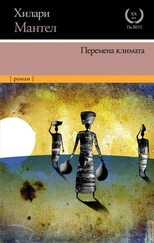At first I thought things were looking up. Old Dan Nash was ensconced in a corner and, quite unlike the dreaded Fenella, Carl and I were always pleased to see him. He was one of our favourite characters, one of the last of the pilchard fishermen St Ives used to be full of before the fish stopped coming. Dan’s stories of the good old days were always worth listening to and invariably beautifully told in his low Cornish burr, which added great charm and even a kind of authority to his tales.
On this day, though, he seemed agitated and at first uncommunicative, barely responding to our greetings.
‘What’s wrong with old Dan, then?’ Carl asked the barmaid as he ordered a pint of bitter for himself and a glass of white wine for me.
‘Reckons he’s seen the Lady with the Lantern,’ replied the girl, raising her eyes heavenwards. ‘Silly old fool; think he’s losing his marbles...’
‘I ’eard that,’ said a voice from the corner. There was certainly nothing wrong with Dan’s hearing.
The girl, a new face behind the bar as far as I was concerned although Carl seemed to know her, didn’t appear to care that the old man had heard her being so unkindly rude about him. She shrugged her shoulders and headed for the other bar.
‘Don’t worry, Dan,’ said Carl. ‘That one’s too young and stupid to have any marbles to lose in the first place.’
Dan chuckled his appreciation and gestured for us to join him. ‘I did see the Lady, though,’ he insisted. ‘Clear as I can see the pair of you.’
Now I was vaguely aware, from my reading of local books and archives, of the legend of the Lady with the Lantern and I wasn’t entirely sure that it was a story we wanted to hear that day. But Carl, probably thinking we were in for a good yarn that might make us forget our troubles, had already sat down on the wooden bench alongside Dan. One of the really nice things about Carl was what a good listener he was and the way he always had time for people. Normally I too was more than happy to listen to the old fishermen’s tales, and ultimately, in spite of my reluctance, I felt I had little choice but to join the pair of them.
‘There was a shipwreck, you see,’ Dan began. ‘Oh, two, three hundred year ago. A big ship driven on to thigee rocks beyond the island...’
He paused and gestured vaguely in the direction of St Ives Head.
‘Many of ’em on board perished right away and as the wreck began to disintegrate still more of ’em was swept into the sea. ’Twas a filthy, dirty night. The waves came in right over thigee harbour wall and the wind was blawing a gale – bit like today, only one of the worst storms in ‘istory, they say. Nonetheless some brave St Ives lads went to the rescue. Fishermen, they was, and they manned their boat and rowed out to the stricken ship. It weren’t possible to get alongside but they approached as near as they dared and, using a rope strung between the two vessels, managed to rescue several sailors.
‘Then a woman appeared on the capsizing deck of the wrecked ship. ’Er seemed to be weak with fear and was supported by a group of sailors, but she clutched a child tightly in ’er arms, which she refused to pass over to any of the sailors while the fishermen attempted to rope her to safety, even though they entreated her to. Eventually, with the ship approaching its death throes, ’er was lowered into the water still holding on to thigee child. ‘Owever, as the fishermen dragged ’er through the raging sea she fainted and let go ’er grip on ’er child, which was lost.
‘The Lady was successfully pulled into the boat and delivered to the safety of dry land where ’er regained consciousness all right. But when ’er learned of the fate of ’er child she lost the will to live and died within hours.
‘’Er was buried in the churchyard over yonder, but shortly afterwards was seen to cross over the churchyard wall on to the beach and walk out to the island.
‘There she spent hours an’ hours searching them terrible rocks before eventually returning to ’er grave.
‘And ’er’s never given up, ‘asn’t the Lady. ’Er still does it to this day, you see. And when the nights be stormy or particularly dark, like they’ve bin all bleddy week, ’er carries a lantern...’
Dan paused, looking agitated again. ‘I saw ’er last night,’ he said. ‘Saw ’er making her way across thigee beach and off to the island, awful big sea there was an’ all, but ’er never takes no heed of that, just carries on looking for that child, searching, waving that lantern every which way...’
Dan lifted his pint of Guinness to his lips and I noticed that his hand was shaking. ‘Something mighty bad’s going to happen,’ he insisted. ‘It always does when you see the Lady. There’ll be a disaster, ’tis fate, nought you can do about it.’
He stared at us, his eyes wide with horror. I felt a shiver run down my spine. Carl was very still beside me.
‘Look at thigee weather,’ continued Dan, gesturing through the steamed-up window. The howl of the wind and the dashing assault of the rain could be heard clearly enough inside the bar. “Twill not abate now till ‘tis ‘appened, whatever ‘tis...’ His voice tailed off.
‘Take no notice.’ The voice from behind us breaking the spell belonged to Rob Partridge, a local policeman who spent most of his off-duty hours in one or other of St Ives’s many hostelries. Not a man to be impressed with Cornish legend, the orange-haired Partridge’s only real interests in life were reputed to be beer and horse-racing. ‘Bleddy load of tosh. I’ve told you before, Dan, about frightening the horses...’
Carl and I were barely listening. Somehow the Union no longer seemed so cosy and welcoming. Without having to discuss it we emptied our glasses and stood up.
‘Load of tosh, you know,’ said Rob again as we left. He leaned unsteadily our way and breathed beer over us. We were not particularly reassured. Rob Partridge was not a man who inspired confidence in any direction. In fact, in spite of his uniform, he was regarded as a bit of a joke in the town.
‘Of course,’ said Carl.
We barely spoke as we trudged up the hill towards Rose Cottage and that was very unusual for us. I knew Carl wasn’t quite back to normal. It might seem trivial but I suspected that the Lady with the Lamp story was still preying on his mind. He was strongly inclined to be superstitious. He believed in omens; he said he had been brought up to. He had his paints and his brushes all arranged in a certain order and if anybody ever changed anything he was convinced it was unlucky. I knew better than to touch anything, but once Will had visited us and, before Carl or I realised what he was doing, had idly moved some brushes around while chatting in the studio.
As soon as Will left, Carl had plastered a thick layer of paint right over the top of the painting he had been working on. ‘I may as well start over again,’ he had said and I was never quite sure if he was being melodramatic or if, quite simply, he was just dissatisfied with his work.
As soon as we were indoors Carl disappeared straight upstairs. I went into the kitchen to heat soup and make toast. Maybe some warming food would make us both feel better. The torrential rain had found its way through the roof again, and water was leaking steadily, forming an already quite substantial puddle on the floor. The sight depressed me further. I mopped up the worst of it, stuck a bucket under the leak and turned my back on it. I poured the soup into big mugs, put them on a tray along with a plate of hot buttered toast and followed Carl upstairs.
He was sitting in one of our two window armchairs. I sat myself in the other and passed him a steaming mug. ‘The Lady with the Lantern, the bad fortune is supposed to happen to the one who sees her,’ I said eventually.
Читать дальше












